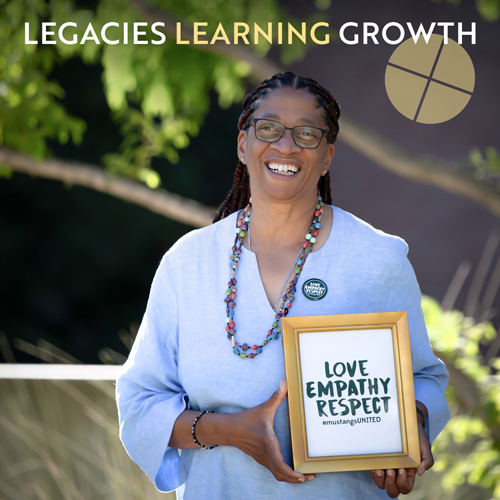Girl Empower English Camp

Editor's Note:
Liberal studies alumna Trisha Huynh (B.S., 2014) spent a year in Malaysia as part of the Fulbright English Teaching Assistant program in 2015. She shares her experiences in a series of reflections. Here she describes her arrival and orientation programs.
Use the links below to jump between sections:
My day started out uneventfully, with the usual walk to school. It was hot. I passed the green fields covered in tropical foliage, the neighborhood cow, and the stream of ants lining the road — regular life in Malaysia.
Although it seemed like an ordinary day, it was not. Today was the day of my Girl Power English Camp, a workshop focused on building confidence, promoting sisterhood, analyzing definitions of beauty, and practicing English in a hands-on environment.
Throughout my time in Malaysia, this topic — girl empowerment — had become very important to me. Girls here are often self-conscious or pessimistic about their body image, intellectual capabilities and sense of self. When I first arrived, they hid their faces when I tried to talk to them, walked to the toilet in groups of two, and chose to sit in the back of the classroom in an effort to blend into the background.

Photo courtesy of Trisha Huynh
I initially interpreted this as weakness, but as I got to know my girls better, I soon discovered that underneath this facade, each of my female students had her own bold, unique personality. One kept her nose stuck in an English book at all times, another couldn’t resist screaming “I love you!” down the hall whenever she saw me, and a third insisted on debating Malaysian politics with me.
I saw potential in these girls — they were all unique and interesting and yet they chose to hide this aspect of themselves from a majority of the school. I wanted to provide them with a safe space to speak openly to one another and understand that their voices mattered. Through conversation and carefully planned activities, I hoped that my girls would see what I saw — that with a little bit of courage, they could achieve their dreams and rock the world as they knew it.
I had been planning this camp for months. I wrote a proposal. I hounded already-busy co-workers to translate it for me. I had a meeting with my creepy principal who occasionally sexually harasses me to obtain permission to hold the camp. I arranged for Rachel Gellert, former English Teaching Assistant and girl empowerment workshop guru, to facilitate the program.
I talked to students, advertising it day after day. I drove an hour away to the nearest supermarket for “fancy” supplies: glue, multi-colored paper, stickers and glossy magazines. I corralled fellow teaching assistants to come from nearby towns to help run the workshop. I carefully chose participants and went from class to class reminding everyone of the big day.
And now the big day was here. I had prepared for every single detail. All I had to do was wait until 3:30 p.m. to watch my hard work, ideas and dreams for my students turn into a reality.
And suddenly, with just a few words, my dreams came crashing down.
“Miss, I can’t come to your camp today.”

Photo courtesy of Trisha Huynh
Breathing became hard. There was a heavy weight in my chest. I knew what was coming. In the span of 16 hours — between the time I left school the day before and arrived to teach to day — extra classes had been assigned, marching practice had been planned, and family emergencies had occurred. I received excuse upon excuse. By midday, it seemed that only five of 60 original students could attend my camp.
It was classic Malaysia — no matter how much I planned and organized, something always happened to go fantastically wrong at the last minute. After seven months, I still have not learned to expect disaster when it comes to program planning. My gut reaction was to scream and pull my hair. Instead, I took a deep breath and went through my plans B-Z.
Plan B: recruit students who were originally interested in the camp but could not attend due to space. Plan E: invite students from lower grades to attend the camp.
Plan L: have a five-student camp.
Plan Z: beg my co-workers to release their female students from extra class.
So I pleaded. I went from teacher to teacher explaining my camp and its purpose. Some enthusiastically let their girls go. Others only half-heartedly agreed. A few had no idea what I was asking. By the end of the day, I had talked to almost every teacher and girl in the school and still didn’t know how many students would attend the camp.
At 3:30, Rachel, the facilitator showed up. Then my fellow teaching assistant friends appeared. Slowly, slowly two girls trickled in. Then five. And then, no one else showed up. I clenched my fists — my camp might be for a total of seven girls. My heart hammered. It was almost 3:45. Staring at the door, I willed more girls to appear.
Finally, a group of girls, giggling and excited, rushed toward the venue. A wave of relief passed through my body. The numbers increased and soon I had 47 girls participating.

Photo courtesy of Trisha Huynh
With my final, biggest hurdle cleared, I relaxed and enjoyed the camp I had worked so hard to organize. I watched as my girls chanted, “I am beautiful. I am brave. I am strong.” Their eyes were bright and excited and their smiles as wide as can be.
My students forgot all about their shyness and fear of exposing their true self to strangers. They roared with laughter at Rachel’s jokes. They eagerly shouted responses, dispelling stereotypes of feminism. They recognized that beauty and feminism are not defined by physical characteristics but intrinsic ones. They begged for more and more time at the camp. Most importantly, they engaged with new ideas and contributed thoughtful analysis to conversations.
“A woman’s beauty is only marked by her inside,” one said.
“Not all women need to be married to be happy,” another said.
“Everyone is different, and that is what makes us great,” a third girl said.
Their responses reminded me why I held this camp in the first place — these girls have an incredible amount of potential, they simply need the resources and confidence to soar.
Life in Malaysia is a roller coaster. Nothing ever seems to go the way it’s planned. There are problems, and there are disasters. I panic and fret and swear that I can’t plan another program, that I simply am not built for the disorder that always seems to erupt beforehand. And yet, at the end of the day, it all seems to work itself out. At the end of the day, it is all worth it.




